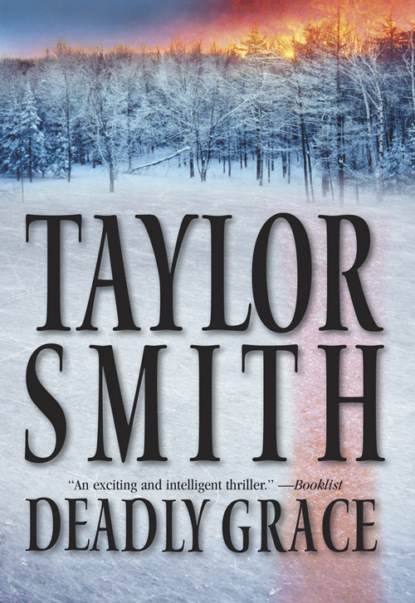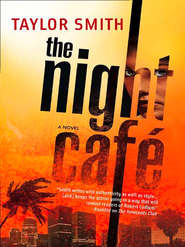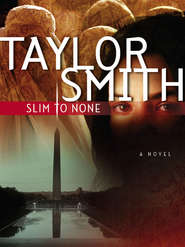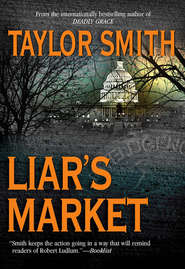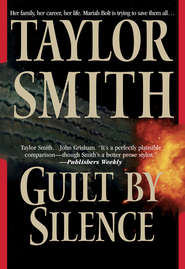По всем вопросам обращайтесь на: info@litportal.ru
(©) 2003-2024.
✖
Deadly Grace
Автор
Год написания книги
2018
Настройки чтения
Размер шрифта
Высота строк
Поля
Well, no, I could have told her, I won’t. It may be her business, if she is a shrink, to get people to talk about their deepest feelings, but I can’t do that. She’s a stranger to me. I’m not the kind of person who confides, even to people I’ve known for many years. I never was. I know there are those who see it as evidence that I feel somehow superior, but the truth is just the opposite. I’ve always been embarrassed to talk about myself. I can’t imagine a duller subject, or why anyone would be interested. I’m a good listener, though. I suppose it’s why I chose to do the work I do, gathering oral histories, recording the reminiscences of mostly older people about the great events they’ve lived through. Their lives are so much more exciting than mine.
This doctor is stubborn, though. I can tell. I know she’ll be back. To be honest, she seems like a very nice person. I feel guilty about ignoring her, but I simply don’t want what she has to offer. How can I convince her I’m a waste of her time and skills? That she’d be better served expending her energies elsewhere, on someone who wants—deserves—to be saved? That I am beyond redemption?
She was careful before she went out to catch the door before it slammed, easing it gently shut. Still, there was no mistaking the sound of the dead bolt ramming home. Obviously, they’re taking no more chances with me. Maybe they think I’ll try to run, but what would be the point, when my thoughts would only come along for the ride?
No, there’s only one escape for me.
In any event, even if I did want to walk out of here, they’ve taken my clothes—destroyed them, I suppose, since they’d have been ruined, what with all the blood, and then blackened from the fire….
Oh, Jillian! What are you thinking? Of course they wouldn’t destroy them. Far from it. Every item would have been painstakingly preserved. Some criminal investigator is no doubt examining them at this very moment, lifting hairs, microscopic bits of lint and drops of my mother’s blood, accumulating the mountain of evidence they’ll be building against me. But that, too, is a waste of time and resources.
In place of my ruined things, they’ve given me a short blue hospital gown and white cotton socks. There’s also a terry robe lying at the end of the bed—beltless. I’ve already checked. Nor is there anything else in here remotely long enough to be used as a rope, not even a sheet on the mattress. There’s just a quilted pad and a thick down duvet to keep me warm. It hardly matters. Even if there were something to make into a noose, there’s no place to hang it. The half-globe light fixture seems firmly anchored to the ceiling, and there are no convenient bars on those high windows. That mesh-reinforced glass looks unbreakable, too, and the room is devoid of any other sharp objects. Even the food trays they bring in and carry out, untouched, hold only round, stainless steel spoons and melamine plates and cups. No breakable plastic or lovely glass shards with which to slash those wrists today, dearie!
Amazing how they think of everything.
The doctor left another parting gift along with this notebook—a box of fine-tipped colored markers. I almost smiled. She’s no fool, this woman. There’s no chance she’d leave me sharp lead pencils or ball point steel suitable for ramming into eager arteries. It’s pretty hard to kill yourself with fuzzy felt Crayolas.
She wants me to write down my thoughts. How cruel is that? My mind wanders between stupor, rage and grief, and sometimes, for a few minutes, I forget. Then suddenly it comes back, slamming into the center of my chest like a sledgehammer—these awful, monstrous memories clawing at my brain—and I remember where I am and why I’m here.
I can hardly bring myself to believe it—my mother is dead….
My mother is dead and I have no business being alive. That’s the fundamental truth here. But maybe it’s not too late. Maybe I have inherited just a tiny measure of her indomitable willpower, after all.
It occurs to me, though, that perhaps I owe society an explanation. If I do that, will I find the courage then to do what I have to do?
I know there are those who will resent justice being cheated in this way. All I can say to them is that I don’t want or expect forgiveness. It’s not even that I’m afraid to face the consequences of what I might have done. I just can’t live with the knowledge of what I am.
They say confession is good for the soul, but I don’t believe it for a minute. Nothing will take away this burden of guilt and shame. And the idea that people will look on me as an object of curiosity, disgust or (God forbid) pity is so insufferable that it gives me pause even now. It’s horrible enough to have the truth here inside me, eating at my soul like a malignancy, but to bring it out into the open for all the world to see? Why would I do that, when it would be so easy to let this all die with my mother—with us both?
Except, what have I learned in my life, and my work, if not that we human beings are doomed to repeat those atrocities we don’t take the time to understand? But before there can be understanding, someone has to bear witness. The innocent deserve that.
Oh, yes, there are innocents in this tale. Maybe I owe it to them to tell this story. For their sake, then, I should set the record down now while I can—while these people are leaving me in peace. I can’t imagine it will last for long. The authorities are bound to show up with their questions sooner or later, and I’ll probably be arrested as soon as I’m deemed fit to walk out of here. But if I can lull this doctor into believing I’m making some sort of therapeutic progress with this notebook, maybe she’ll hold them at bay long enough for me to get it all down.
These gifts of hers—this notebook, this quiet time, and these markers in their ridiculously cheerful hues of wild cherry, magenta and indigo—maybe they’re Fate’s way of offering me a chance to atone for my sins. Mine and my mother’s. We owe a vast debt, she and I, and while nothing can ever repay it, a full confession is the very least we can offer.
Then, once I’ve finished, I’ll look for my chance. Because it’s a sure bet that, sooner or later, the attention of these caretakers will flag, however briefly. And when it does, I’ll seize the opportunity to end a life that never should have been and submit to whatever judgment lies waiting for me in the next.
CHAPTER 8
Montrose, Minnesota
Thursday, January 11, 1979
Cruz and Berglund pulled into the parking lot of the Montrose Regional Hospital, sixteen miles northwest of Havenwood. In an area reserved for official vehicles, Berglund nestled the black-and-white cruiser into a parking spot just opposite the emergency entrance ramp.
The three-story hospital looked new, with fresh, brightly painted signs in orange and blue, and sidewalks and roadways still untouched by the frost heave of unrelenting winters that turned every paved surface into a spiderweb of cracks, fissures and potholes. But, Cruz thought, the hospital could have been in Tallahassee, Florida or Missoula, Montana, for all the uniqueness of its institutional tan and stucco exterior.
“Do you really think Jillian Meade intended to kill herself?” he asked, as he and Berglund climbed out of the cruiser and headed up the walkway.
“No question. They said she had that needle in her arm, and that she fought like hell with the orderly who tackled her, just like she fought me when I wouldn’t let her stay in that burning house. They doubled up on her tranquilizers after that. Even then, the doc on call said he thought she was serious enough about doing herself in that he had her put in full restraints before they transferred her over here to the psych ward.”
Cruz said nothing, but the cynic in him had his doubts. Just because the woman was in the loony bin didn’t mean she wasn’t crazy like a fox.
He drew a deep breath of piney air just before they passed through the sliding glass front doors, girding himself. He’d visited more than his share of psychiatric units. In the course of eleven years as a U.S. Army criminal investigator, he’d run into every conceivable mental quirk, malady and trauma that could erupt in violence. He’d personally witnessed his first murder on June 11, 1965, a day that had changed the course of his life forever. Since then, he’d investigated more than three hundred others. Most of them had sprung from stupid rage and momentary loss of self-control, senseless acts committed in a blur of drugs or booze. A few had been meticulously planned, the murder itself secondary to an insatiable desire for something else—money, a woman, revenge.
And then, there were the tragedies, pure and simple. Even normally decent, sane people had their triggers, and under the right amount of pressure, anyone could buckle. Cruz had seen that fourteen years earlier, on a June day out in a swampy delta north of Da Nang. His faith in humanity had been on shaky ground ever since.
Berglund looked grim, as if he was dreading this as much as Cruz was. “Ready?”
Cruz nodded.
So what was Jillian Meade’s story? How coincidental was it that three women linked to her had now died under suspicious circumstances within the span of a month? Was she some kind of uncontrolled psychopath, or a smart faker with some obscure and twisted motive? If the latter, they weren’t going to do anything for her in here. Drugs and therapy might unkink a mildly bent psyche, but there was no curing a killer who was genuinely psychotic or very clever—and they were often one and the same. He’d seen thieves, rapists and serial killers who could mimic an entire catalogue of clinical symptoms in a bid to dodge criminal responsibility for their acts, trying to cop a “not guilty by reason of insanity” plea. Was that Jillian Meade’s game?
Inside, the hospital had the cookie-cutter look of medical institutes all over the country, with scrubbable white walls, industrial carpeted floors, and utilitarian, charm-free furnishings. A few garish splashes had been added in the form of wide racing stripes in the hallways, but even these were resolutely functional, color-coded by department. Cruz and Berglund followed a blue stripe to the main reception, where the deputy approached the desk to ask for directions. The stripes leading back to the ER were red, Cruz noted. Green was apparently for obstetrics, orange for pediatrics. And the psych ward?
Berglund turned to him and nodded at the bank of elevators on the opposite wall. “She says go to three, then follow the purple stripe.”
At the elevator doors, as they stood in silence watching the lights overhead dance down to one, Cruz thought about possible links between Grace Meade and the other victims. Mrs. Meade had been English by birth, so maybe the two female victims in Britain had been friends of hers, which might explain Jillian Meade’s calling on them. One of the women had been a semi-retired civil servant of some sort, his Scotland Yard contact had said. The other, a retired hospital “tea cart lady.” Both of them elderly, both of them living alone when they died, brutally attacked and killed in their homes, which had subsequently been torched. Why?
Both of them visited by Jillian Meade only a short time earlier. Why?
At the third floor, Cruz followed Berglund to a thick glass window under a plaque that read: “Reception—Please Sign In.” On the other side of the glass, a guy in green scrubs sat in a swivel chair with his back to the window, his white sneakers propped on a credenza behind. Coffee cup in one hand, he was reading a newspaper that he held awkwardly folded in his free hand, shaking it back open from time to time when it occasionally collapsed on itself. The comics page, Cruz noted, peering over his shoulder.
Berglund tapped on the window and he started, splashing coffee on his pants, the paper and his arm. A muffled curse sounded through the double-plate glass as his feet dropped to the floor. The chair pivoted and he looked up, peeved, but at the sight of the burly man in uniform bearing down on him, he prudently swallowed his protest.
“Help you?” he asked, shaking splattered coffee from his hands. His voice came out of a round, slatted steel disc in the glass sounding tinny and crackled, like every drive-in movie speaker Cruz had ever encountered in his misspent youth.
Berglund planted his hands on the counter. “I’m Deputy Chief of Police Berglund with the Havenwood Police Department. This is Federal Agent Cruz. We’re here to speak to Jillian Meade.”
“I’m just an orderly. I’m filling in while the head nurse is on her coffee break, but lemme see…” He slid a clipboard in front of him and ran a finger down the page. “Meade, Meade…nope. Can’t help you right now.”
“What do you mean? I just spoke to the front office by phone a couple of hours ago. I know she’s here.”
“Oh, yeah, she’s here all right, but she’s still being evaluated. No visitors.”
“This is official business.”
The orderly shrugged. “Her doctor would have to clear it.”
“Fine,” Berglund said, “we’d like to speak to him.”
The reply was a one-syllable pop.
“Pardon?” Berglund asked.
“Her,” the orderly replied. “The psychiatrist is a woman, Dr. Kandinsky.”
“Her, then. Could you get her, please?”





